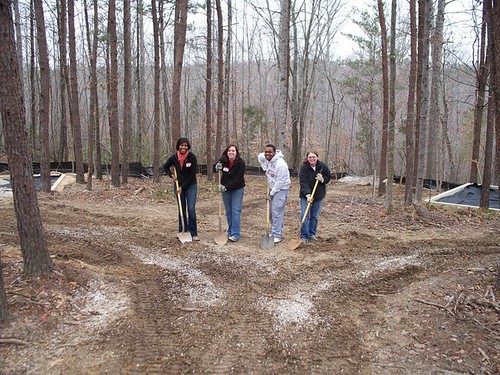One characteristic that sets humans apart from other animals on this planet is our willingness to help others, even if you need to sacrifice your own well-being. Thousands of people around the world volunteer their time and energy for causes they hold dear to them. One study by psychologist Dr. Mark Snyder examined the psychology behind volunteerism and why people help others they may never meet. He found the following five motivations for volunteering.
Personal Values

Image via Flickr by vastateparksstaff
For some, personal values and concerns about the world will lead them to volunteering. These attributes can also include those who volunteer for religious reasons, as many monotheistic religions emphasize helping others. For example, helping those less fortunate is a large part of Christianity, and the concept of karma in Hinduism means those good deeds come back to you. However, no evidence exists that suggests those who are religious volunteer more than those who are not, and volunteerism is still high among those who are not religious.
Community Concerns
Another reason some people feel a need to volunteer is because they’re concerned about the community they live in or an ethnic group to which they feel attachment. These community concerns are usually the top reason older volunteers give back for their actions. In these cases, volunteers may pick up garbage around their neighborhood or help build a new playground for underprivileged children.
Self-Esteem Enhancement
Other people choose to volunteer because they feel better about themselves. In fact, studies have shown this self-esteem enhancement isn’t just in their heads. Dr. Suzanne Richards found that not only is volunteering associated with increased happiness and lower depression, but volunteering also reduces the risk of premature death by 22 percent.
Researchers believe volunteering can extend people’s lives because humans are hard-wired for the social connections we make when volunteering. Eye contact and smiling releases the hormone oxytocin, which helps us handle stress better. Additionally, volunteering gets us active and moving, which makes us more physically fit.
A Need to Understand Others
For others, volunteering is a way to gain a better understanding of different places, cultures, and people. The most common examples of this type of attribute are when volunteers travel to other countries to help build schools, aid those who are sick or injured, or serve underdeveloped communities. People can also be interested in the social connections they make through volunteering.
Personal Development
Younger volunteers typically fall into the personal development group. Those who volunteer for this reason are usually looking to meet people, make new friends, learn more about themselves, or advance their careers. For example, many who are enrolled in online counseling degree coursework will volunteer their time at shelters or group homes to learn more about the profession they are entering and gain valuable experience for their future career.
People of all races, religions, and ages tend to volunteer at the same rates. While their motives for doing so may differ, in the end, many are simply interested in the benefits of helping their community and themselves.
